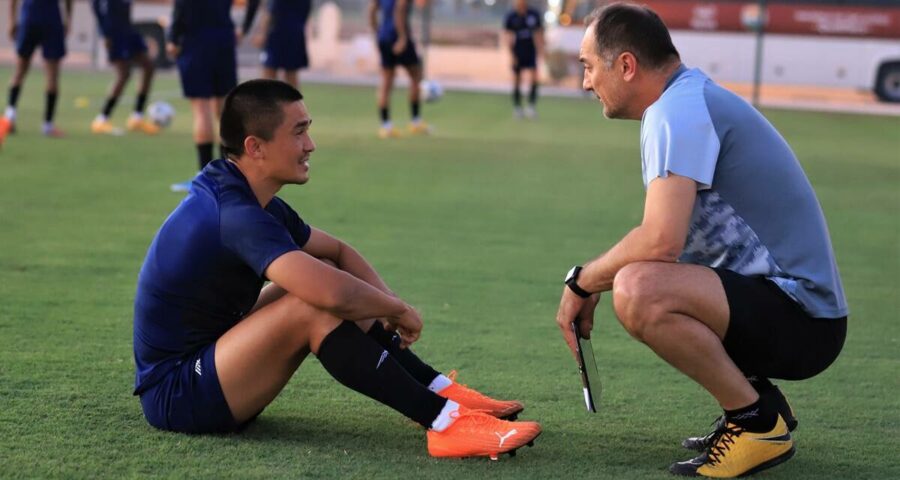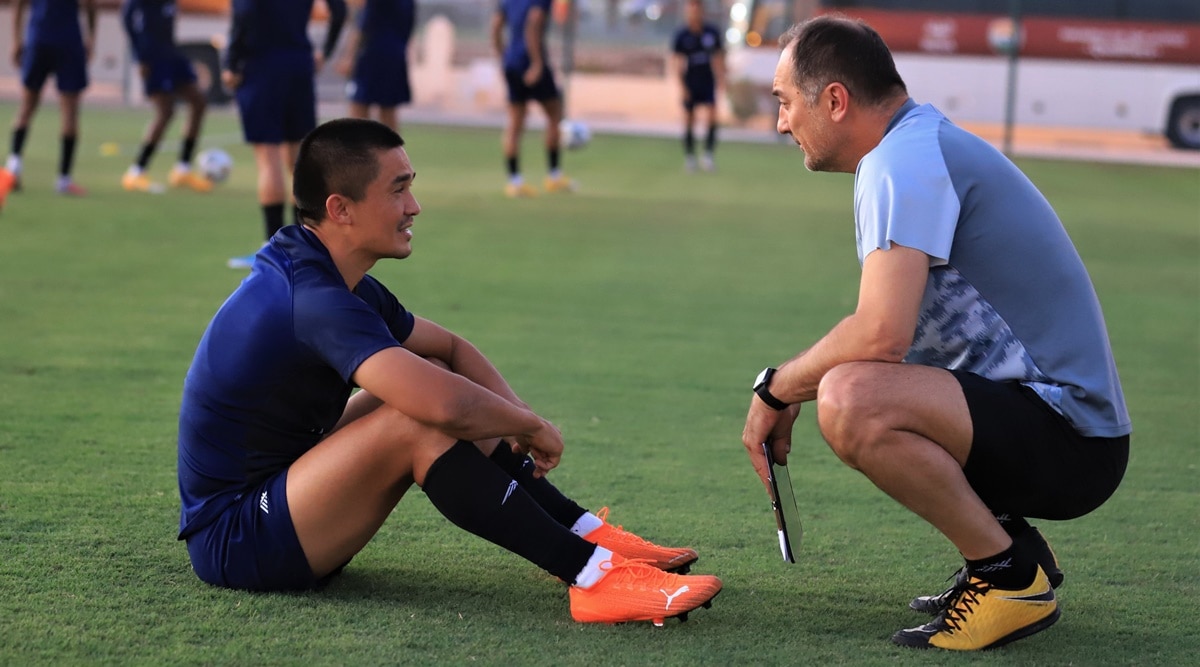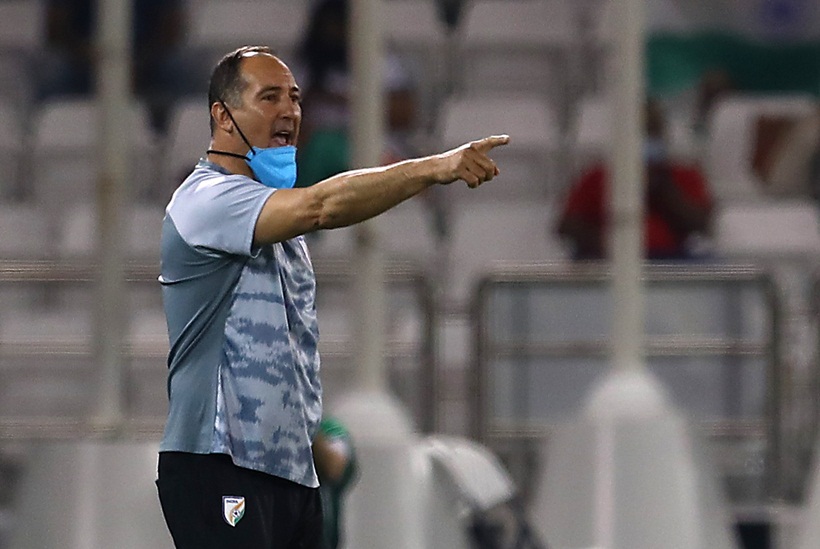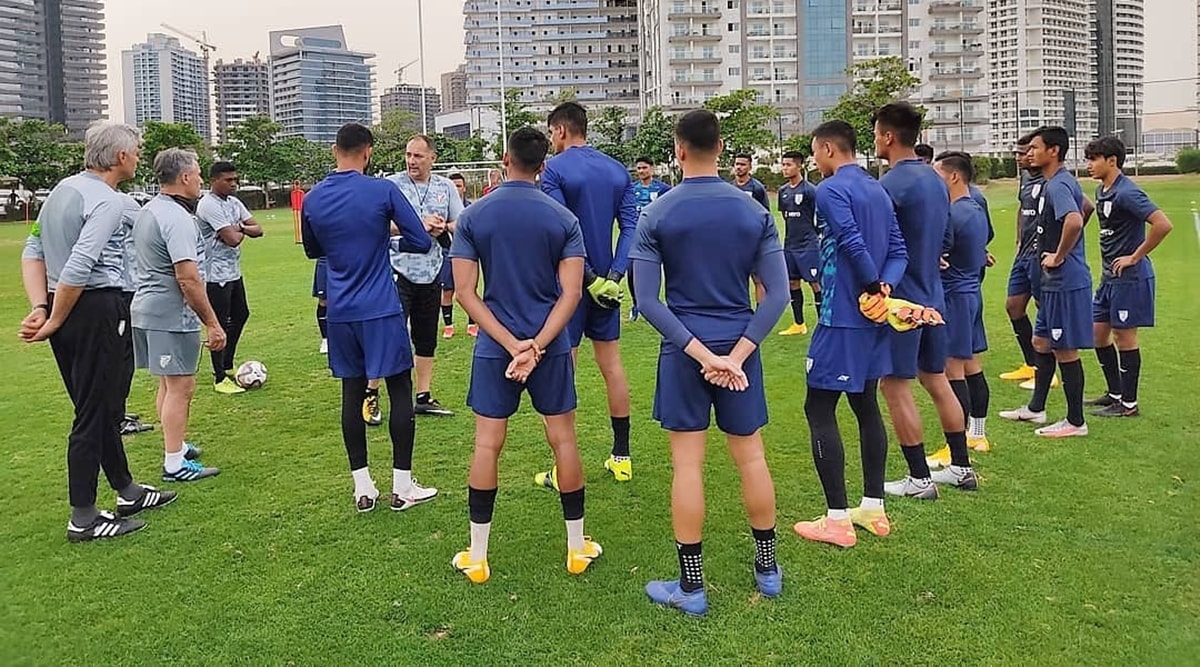Igor Stimac explains why progress for Indian football on the international stage can’t be achieved overnight.
When Indian Super League team FC Goa became the first club from the country to participate in the AFC Asian Champions League (ACL), national team coach Igor Stimac kept an eagle eye on the team’s performances. The Gaurs ended up with three draws and three losses, with one of the draws coming against Al Rayyan, coached by French World Cup winner Laurent Blanc. But Stimac was far from impressed.
“We were excited about Goa in the ACL. We were proud. But when it came to stats, when it came to facing teams with higher quality, the possession was in 30s and only six shots against those teams. And they had four foreigners. I don’t have any,” Stimac told reporters on a Zoom call, trying to explain why progress for Indian football on the international stage can’t be achieved overnight.
Two years on from being heralded as the man to take Indian football to the next level, Stimac wasn’t exactly given a vote of confidence a few weeks back. The All India Football Federation (AIFF) may have decided to extend his contract, but to do so till only September 2021 means the 53-year-old still has a few doubters when it comes to the longer term.
Tough going
The Croat, for his part, believes that he kept his end of the bargain. In a press conference organised by the AIFF, Stimac said the qualifying for the third round of the Asian Cup qualifiers was “mission accomplished”. But on taking over as head coach, Stimac had spoken of changing the way India played football.
“I have my numbers which show that we have improved in ball passing accuracy and ball retention. When you are changing the style with not too many technical players you will find yourself in a difficult position,” he said.
The “not too many technical players” phrase is an indictment on the structure of Indian football that Stimac has made in the past and did so on Thursday as well. Be it his jibe on the absence of a relegation threat (“Don’t get me wrong, but ISL doesn’t have pressure. There is no relegation”) or his remark on Indian leagues not giving enough games every season to their top players (“We need to provide the players more games, more high-quality football”), Stimac has often spoken about the issues that don’t let Indian football progress in an organised, structured manner.
Others racing ahead
When asked about countries behind India in the rankings managing to do better, Stimac once again pointed out the lack of investment in better coaches at the grassroots level. This, combined with the Indian Super League only recently beginning to follow the Asian benchmark of no more than four foreign players in a team, has bottle-necked the quality of players coming out of the system.
“We need to understand that some countries which are smaller than us are putting in much higher efforts to advance their leagues and more investment is coming. They are advancing faster than us,” said Stimac.
Citing the example of searching for the next Indian striker of quality, Stimac said, “Let me ask you, who do you see in India who can replace (Sunil) Chhetri? The national team is not an academy, we can only get what we have in ISL and I-League and other lower leagues. The national team door is open for everyone but where to find someone like Chhetri?”
Stimac’s immediate solution to this was also one that he and the AIFF have tried to implement in the past, namely trying to convince the government to allow Overseas Citizens of India (OCIs) to play for the national team. Previously, the Indian government has been of the view that OCIs will hamper the development of local talent.
Source: Read Full Article




